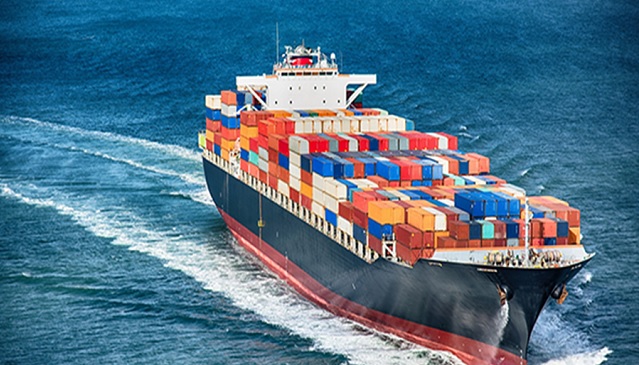
Kampala, Uganda | THE INDEPENDENT | All Ugandan importers are required to insure their imports still on the high seas with local insurance companies through the Local Marine Insurance Portal, starting next month.
This follows the completion of all the necessary processes, including integrating the Uganda Revenue Authority (URA), Uganda Insurers Association (UIA) and the Insurance Regulatory Authority (IRA) processes and sensitization of importers and clearing and forwarding agents.
The policy which was due to be implemented in 2022 but has since been postponed three times due to the failure of stakeholders to compromise.
This policy measure is by Section 9 (3) of the Insurance Act, 2017 and its compliance shall be enforced at the point of import declaration with Customs.
UIA says after a long period of testing the use of the Online Local Marine Insurance portal, it has now proved to be successful and will be mandatory for importers to use it starting next month.
The idea of Local Marine insurance is to ensure that all importers use the locally licensed insurance companies to acquire marine insurance to benefit from the accruing advantages including ease of making claims in case of uncertainty.
It is also said that local marine cargo insurance helps the importer avoid the 1.5 percent surcharge payable, which is otherwise about 70 percent higher than the average insurance premiums payable across all commodity types guided by the local insurance regulator.
URA Acting Commissioner Trade, Brenda Wenene urged players in the clearing and forwarding industry to learn the new processes to facilitate clients.
“This platform has come to facilitate the business community and to enhance the economy of the Country. I therefore urge you to be proactive in understanding this new change because a lack of Knowledge of the processes will make it costly and tedious for importers to do business,” she said.
UIA emphasizes that it is important for the traders to embrace this initiative because it has many benefits apart from helping build the capacity of local insurance companies.
“If marine insurance is not used, the importer faces penalties as the goods are held at the warehouse,” said Elizabeth Musaasizi, System Developer of the Marine Cargo Insurance Portal while explaining the readiness of the portal.
The business community, including clearing and forwarding agencies and the importers, welcomed the development saying it will go a long way in improving the business environment.
They hoped that all their concerns that will be raised will continue to be responded to as has been the case during the process of getting the system ready over the last two years.
Jaffer Abdallah, the President of the Uganda Clearing Industry and Forwarding Association (UCIFA) reiterated the importance of local marine insurance but said that clearing agents had previously lacked a clear understanding of its value.
“Since 2022, when the directive was issued by the Ministry of Finance, Planning and Economic Development we as clearing agents sensitized our members/colleagues and clients; we have sensitized over 1,000 clearing agents,” Abdallah said.
Charles Ekweu, Director General of the Federation of Uganda Customs Agents & Freight Forwarders, urged the responsible government agencies and stakeholders to address the issues that have delayed the implementation of Local Marine Insurance to ensure its smooth implementation.
He however said implantation was crucial because of the policy’s numerous benefits. While Local Marine Insurance has been implemented without enforcement until now, the launch of the portal means that all is ready for making it mandatory as all importers are now catered for.
Elizabeth Musasizi, the System Developer of the Marine Cargo Insurance Portal, says the UIA website offers an importer a portal for those without a preferred insurer.
Importers can use the Marine Cargo portal on the UIA website to acquire the certificate.
Local insurance companies say they are ready to insure any kind, size and value of cargo imports while at sea, by air or on rail, though most of Uganda’s imports are moved by sea.
Risks to the goods in transit include perils of the sea like destruction due to storms, tsunamis, lightning, earthquakes, sinking or capsising of the vessel.
Others are fires, explosions, attacks, war, piracy and others that can befall the goods.
Insurers will cover damage to part or all the goods in transit, loss of the cargo, contamination by water, moisture, oils or any other chemicals, theft and non-delivery at the agreed destination.
The insurer will not take liability if the said effect on the goods is due to the owner’s ‘willful’ actions, wrong packaging, ordinary leakage, wear and tear, bad condition of the sea vessel or container, war and strikes, foreseen risks like weather, among others.
*****
URN
 The Independent Uganda: You get the Truth we Pay the Price
The Independent Uganda: You get the Truth we Pay the Price





